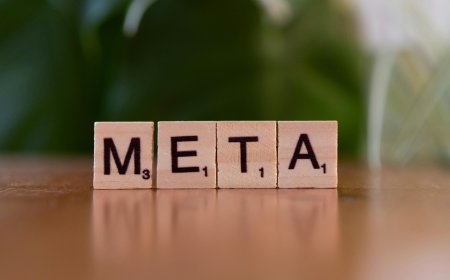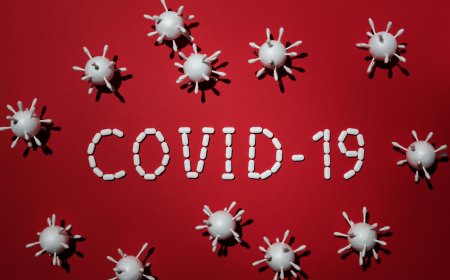Trump’s Ukraine ‘Security Guarantees’: What They Could Mean
Trump vowed “security guarantees” for Ukraine. But what would that look like—and could it replace NATO membership?

When Donald Trump promises something, the world tends to hold its breath—especially when it involves war and peace. In a recent statement, the former president pledged “security guarantees” for Ukraine if he returns to the White House. It was a carefully chosen phrase, one that stopped short of committing the United States to NATO expansion, but still hinted at an ironclad deal.

The promise has raised fresh questions: what exactly does a Trump-style security guarantee look like? Could it mean military support, arms deals, or something far more transactional? For Kyiv, which has long sought NATO membership as its ultimate shield against Russia, the answer could redefine the future of the war—and Europe’s security order.
What Trump Said—and Didn’t Say
Trump’s choice of words was deliberate. He avoided endorsing NATO membership for Ukraine, an idea that remains deeply divisive in Washington and fiercely opposed in Moscow. Instead, he dangled the concept of “security guarantees”—a term vague enough to inspire hope in Kyiv but flexible enough to leave him plenty of room for maneuver.
While the Biden administration has framed support for Ukraine as a long-term investment in Western security, Trump has consistently cast the conflict in business-like terms. His latest remarks suggest that, if elected, he might be more interested in negotiating a bespoke deal rather than embracing NATO’s Article 5 mutual defense clause.
For Ukraine, that could mean a package of binding but limited protections—something short of NATO membership, yet more tangible than symbolic statements of solidarity.
What Security Guarantees Could Look Like
Security guarantees are not a one-size-fits-all concept. They range from formal treaties to informal pledges, and history offers several models:
- Bilateral Defense Pact – Similar to U.S. agreements with South Korea or Japan, where Washington commits to defense but maintains flexibility.
- Security Cooperation Agreement – Providing advanced weapons, intelligence sharing, and joint exercises without a formal defense obligation.
- Nuclear Umbrella Assurances – Extending deterrence by signaling that any major attack on Ukraine could trigger U.S. nuclear-backed retaliation.
- Economic & Military Aid Guarantees – Locked-in funding, arms deliveries, and reconstruction assistance regardless of shifting political winds.
The question is not whether Trump would offer support, but how much—and on what terms. His track record suggests he prefers deals where the U.S. carries less of the financial burden, pushing allies to shoulder more responsibility. That could mean conditioning aid on European commitments or demanding Ukrainian reforms in exchange.
The NATO Question: A Deliberate Alternative
For years, Ukraine’s strategic goal has been NATO membership, a move seen by Kyiv as the ultimate deterrent against Russian aggression. But Trump’s rhetoric indicates he may sidestep the issue entirely, offering guarantees that mimic NATO protection without actually extending Article 5.
Why? Two reasons stand out:
- Domestic Politics – A segment of U.S. voters is wary of open-ended military commitments. Trump can promise protection without triggering fears of automatic war with Russia.
- Russia Factor – Moscow has made NATO expansion its red line. By proposing security guarantees instead, Trump might frame himself as a dealmaker who can reduce tensions while still backing Ukraine.
This balancing act allows him to claim strong support for Kyiv while avoiding the political risks of NATO enlargement.
Ukraine’s Perspective: Hope and Anxiety
In Kyiv, Trump’s remarks have been met with cautious optimism. President Volodymyr Zelensky has long pushed for Western assurances that go beyond symbolic promises. Yet there is also apprehension. Ukrainians know too well the dangers of vague security guarantees—the 1994 Budapest Memorandum, in which Kyiv gave up its nuclear arsenal in exchange for Western assurances, collapsed when Russia invaded Crimea.
For Ukrainians, the memory of those broken promises is raw. Security guarantees must now mean something enforceable, not another piece of paper.
Europe’s Role in the Equation
Any Trump-led security framework would almost certainly involve Europe more directly. The former president has repeatedly accused NATO members of freeloading on U.S. defense spending. His vision of guarantees for Ukraine might push Germany, France, and Britain to commit not just words, but weapons and money.
European leaders, however, remain divided. Some fear that a U.S.-led guarantee outside NATO could weaken the alliance itself. Others see it as a pragmatic step that could give Ukraine protection while avoiding further escalation with Russia.
This tension underscores a deeper question: would Trump’s security guarantees strengthen transatlantic unity—or fracture it further?
Storytelling Section: The Human Side of Guarantees
In a small town outside Kharkiv, residents still live under the shadow of Russian shelling. One mother of three keeps a bag packed by the door, ready to flee at the first sound of artillery. For her, political debates about NATO or bilateral guarantees feel distant—until she remembers how quickly the world’s promises can vanish.
“We were told Ukraine would not be left alone,” she said, recalling the Budapest Memorandum. “But when the bombs fell, who came? Only our soldiers.”
For families like hers, the phrase “security guarantees” carries more weight than in Washington press conferences. It means the difference between rebuilding a home or burying loved ones. Any new agreement will be judged not by the fine print, but by whether it can stop the next missile from striking.
Could Trump’s Guarantees Work in Practice?
Implementing guarantees is easier said than done. For them to be credible, they must meet three tests:
- Military Teeth – Ukraine needs weapons, training, and intelligence, not just words.
- Legal Binding Power – A guarantee must survive political shifts, ensuring aid doesn’t evaporate after elections.
- Deterrence Effect – Russia must believe the U.S. and its allies would act decisively if Ukraine were attacked.
Without these, guarantees risk becoming another hollow promise. Trump’s challenge would be to balance his America-first approach with the need to project real deterrence.
The Geopolitical Gamble
For Trump, offering Ukraine security guarantees is not just about Kyiv—it is also a message to Moscow, Beijing, and Washington voters. He wants to present himself as the leader who can end the war without dragging the U.S. into another endless conflict.
Yet the gamble is high-stakes. Too weak a guarantee could embolden Russia. Too strong a guarantee could draw the U.S. into direct confrontation. The art of the deal may prove far harder when nuclear-armed powers are involved.
Conclusion: A Promise with Global Consequences
Trump’s pledge of “security guarantees” for Ukraine has opened a new chapter in the debate over how the West supports Kyiv. It may not be NATO membership, but it could reshape the balance of power in Europe.
For Ukrainians, the key question is whether those guarantees would finally deliver the protection they were promised decades ago—or whether they would be another fragile pact, destined to crumble when tested.
What is clear is this: the phrase “security guarantees” is no longer a diplomatic abstraction. It is a promise with life-and-death consequences, carrying the weight of war, peace, and the credibility of the United States on the world stage.
FAQs
1. What did Trump promise Ukraine?
He pledged “security guarantees,” but stopped short of endorsing NATO membership.
2. How are security guarantees different from NATO?
NATO’s Article 5 ensures collective defense, while guarantees could be tailored agreements without automatic military action.
3. Could Trump’s guarantees replace NATO membership for Ukraine?
They might serve as an alternative, but many in Kyiv still see NATO as the ultimate safeguard.
4. Why is Ukraine cautious about such promises?
Past assurances, like the 1994 Budapest Memorandum, failed to protect Ukraine when Russia invaded.
5. Would Europe play a role in Trump’s plan?
Almost certainly—Trump has signaled he would push European nations to commit more to Ukraine’s defense.
What's Your Reaction?
 Like
0
Like
0
 Dislike
0
Dislike
0
 Love
0
Love
0
 Funny
0
Funny
0
 Angry
0
Angry
0
 Sad
0
Sad
0
 Wow
0
Wow
0





































































